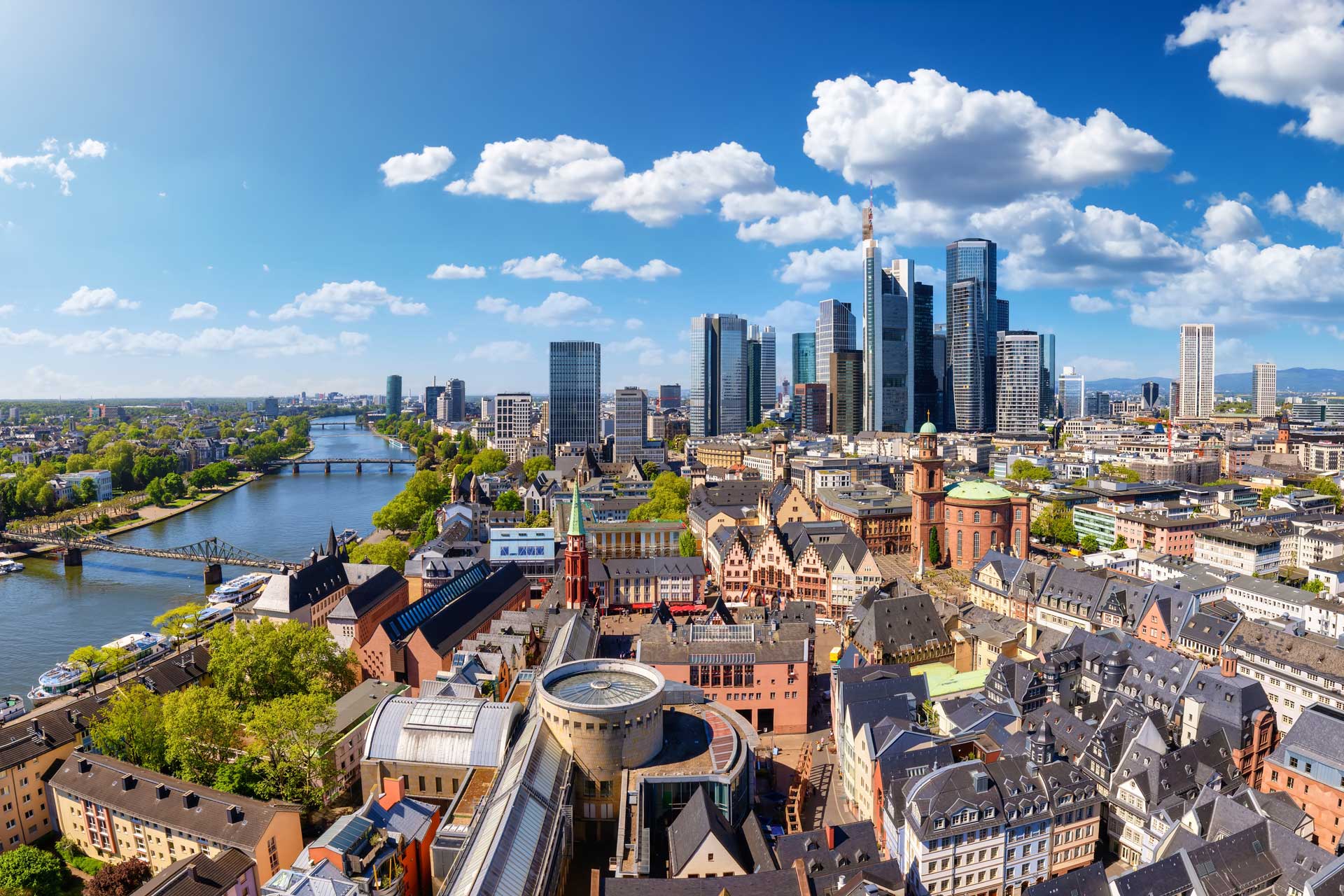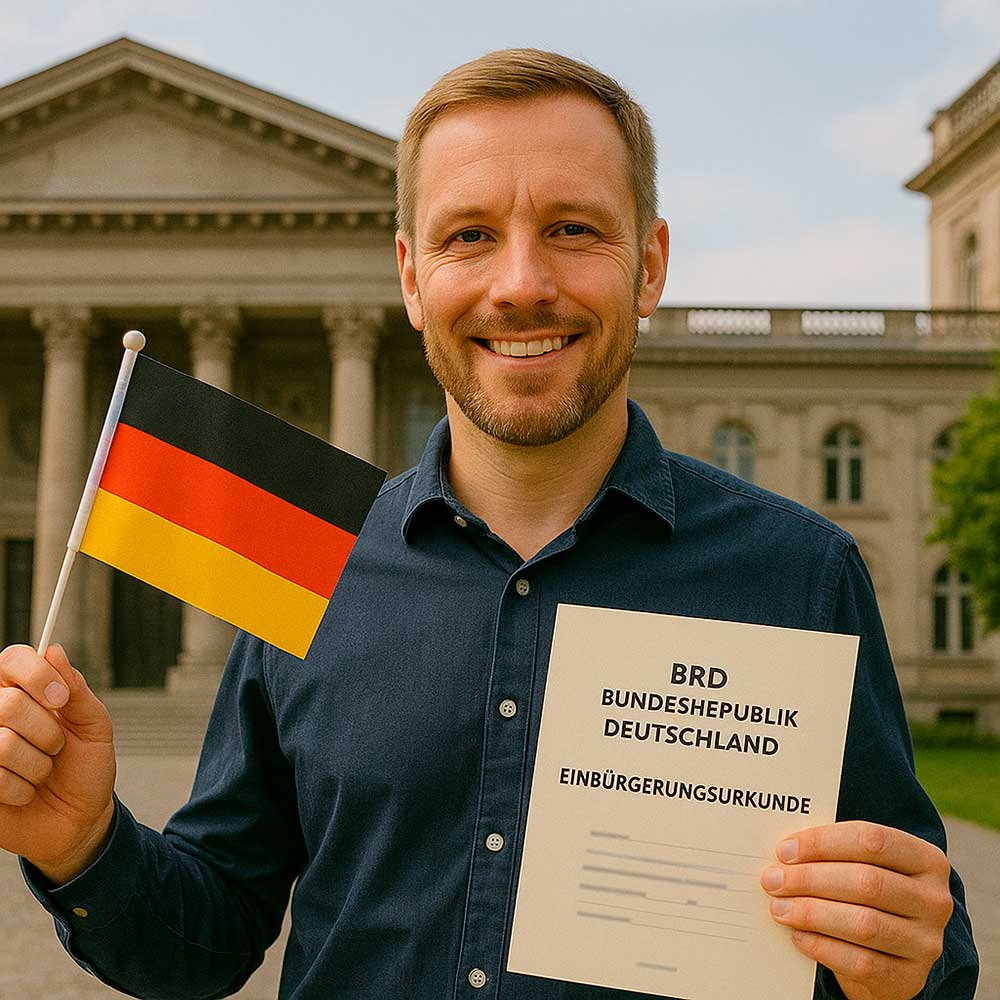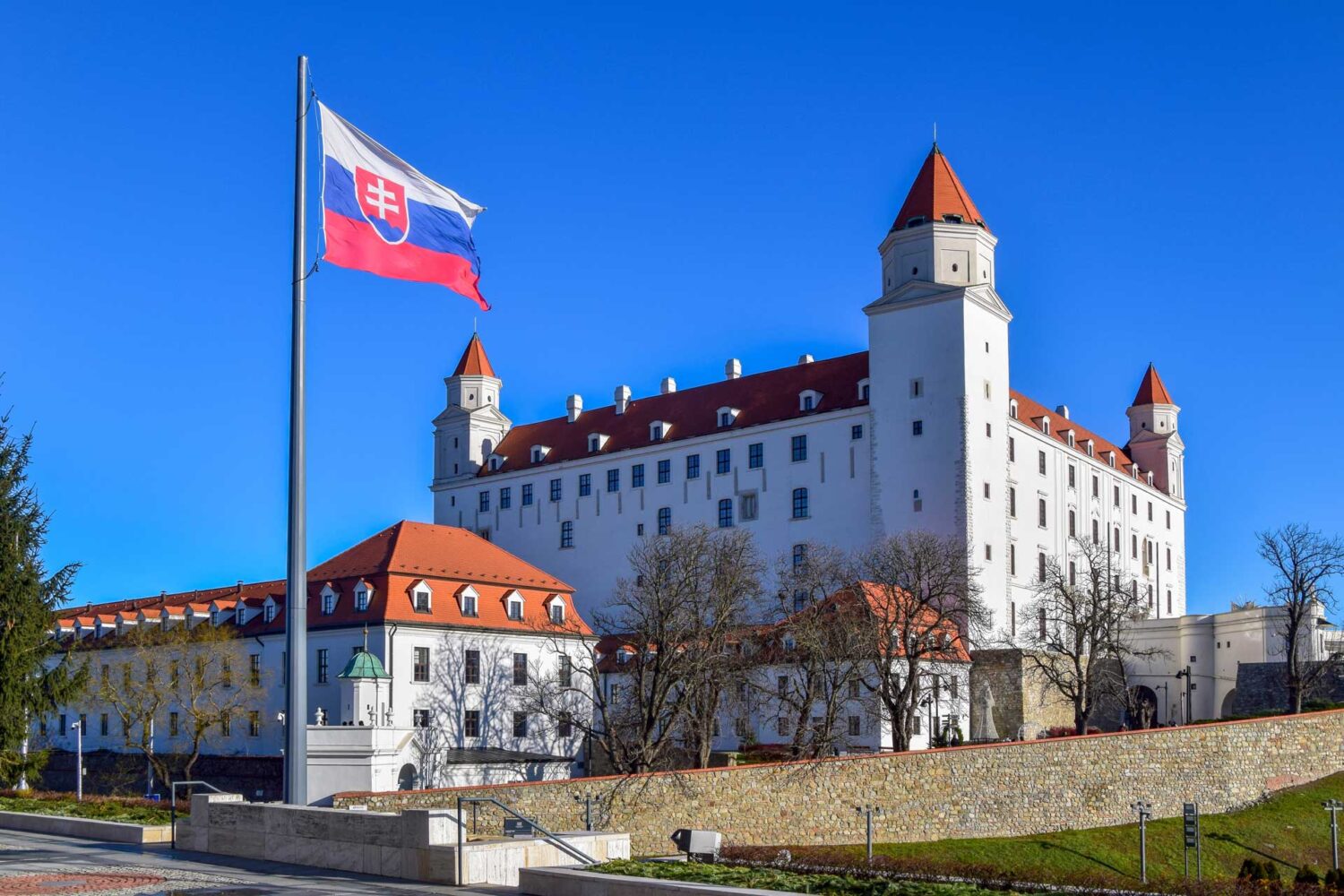German citizenship is a legal status granting full civil, political and social rights in one of the most economically developed countries in Europe. In 2025, German citizenship became easier than ever to obtain: amendments to the law came into force that allowed multiple citizenship and reduced the standard naturalization period from 8 to 5 years. Holders of a German passport receive the status of citizens of the European Union and can visit almost 190 countries without visas.
In this article we will tell you who has the right to German citizenship, by what ways it can be obtained, what is the procedure for submitting documents, requirements for applicants, waiting time and the cost of the procedure. We will also consider the nuances of dual citizenship and give answers to common questions.
If you are planning to apply for German citizenship, we recommend analyzing your grounds and consulting with a Mycitizenagency migration lawyer to choose the best program for you.
Advantages of German citizenship
Obtaining German citizenship opens up a wide range of opportunities and privileges for the new citizen:
- Freedom of movement and a powerful passport.
The German passport is among the “strongest” in the world in terms of visa-free destinations – German citizens can travel visa-free or with simplified processing to almost 190 countries, including the USA, Canada, the UK, Australia and Japan. In addition, a German citizen is free to live, work or study in any EU country without an additional residence permit, enjoying all the rights of EU citizens. - High standard of living and social guarantees.
Germany is one of the most developed and stable countries in Europe, with a strong economy and an extensive system of social support. German citizenship entitles you to quality state medical insurance, various social benefits (if necessary) and protection from the state. You and your family will have access to one of the best standards of living in the world. - Education and work.
German citizens have the right to free or low-cost education in public universities – only a token semester fee is paid, while the education itself is financed by the state. Diplomas of German universities are highly valued all over the world. Also, citizens can work in Germany (or other EU countries) in any position, create a business, and enjoy support for entrepreneurs. - Political rights and consular protection.
The status of a citizen gives you the opportunity to participate in elections and referendums, to hold public office. You receive a full range of civil rights. In addition, Germany will provide you with protection abroad – embassies and consulates are obliged to help their citizens in emergency situations abroad.
Find out how to obtain citizenship faster
How to obtain German citizenship
Citizenship of the Federal Republic of Germany can be obtained on various grounds, either by birth or by acquisition. The following are the main ways for foreigners and stateless persons to obtain German citizenship:
- By birth (right of soil and “by blood”).
A child automatically becomes a German citizen if at least one of the parents is a German citizen – regardless of whether the child was born in Germany or abroad. In addition, children of foreigners born in Germany can also receive German citizenship by birthright (ius soli), if at the time of birth at least one of the parents legally and permanently resided in Germany for at least 5 years and had the right of permanent residence (previously 8 years of residence was required, but the new wording of the law reduced this period to 5 years). In such cases, the child usually has dual citizenship from birth and now does not have to choose between the two when he or she reaches the age of 18 – the choice rule (Optionspflicht) has been abolished in 2024. - By descent (repatriation of ethnic Germans).
If the applicant has German roots, there are repatriation programs to the historical homeland. The program of late immigrants (Spätaussiedler) allows ethnic Germans from the former Soviet Union and Eastern Europe to obtain German citizenship in a simplified procedure. To do this, you need to document your ancestors’ German nationality (birth certificates, marriage certificates, archival certificates, etc.) and your German language skills at least at the B1 level. After approval of the immigrant status, you and your family enter Germany with a national visa, and upon arrival you immediately receive the status of a citizen (a special certificate is issued). This way is considered the fastest – in fact, citizenship is granted in 3-6 months after the move. - Naturalization (by long-term residence).
This is the main way for most immigrants to obtain citizenship. The standard period of residence required for naturalization is now 5 years of legal residence in Germany. At the end of this period (and if all the requirements below are met), the foreigner is eligible to apply for citizenship. The residence time counts as long as you had a valid residence permit and lived in the country permanently. Naturalization can be accelerated in special cases: for example, the period is reduced to 3 years for persons with outstanding integration success – this presupposes fluency in German at the C1 level and special achievements (high academic or work achievements, active volunteer work, contribution to society, etc.). - Through marriage to a German citizen.
Although marriage to a German/German does not automatically confer citizenship, it greatly facilitates and accelerates naturalization. As mentioned above, the spouse of a foreign citizen can apply for citizenship after 3 years of residence in Germany, if the marriage has been officially registered for 2 years. The requirements are the same as for regular naturalization (language skills, absence of irregularities, integration, etc.). - Naturalization of refugees (political asylum).
Persons who have been granted asylum status or refugee recognition in Germany can also become citizens through naturalization. Formally, the same terms apply to them – 5 years of residence from the date of application (including the period of consideration). However, the process of obtaining refugee status itself is a complicated path, connected with the need to prove the facts of persecution in the home country. This way cannot be called simple or guaranteed, so for those who do not feel a real threat in their home country, it is recommended to immigrate on other grounds (work, study, marriage, etc.) rather than trying to enter the country illegally and apply for asylum.
✈︎ Not sure which path to citizenship is right for you? Ask for a consultation - our lawyers will analyze your situation and choose the best grounds for immigration and simplified programs for obtaining citizenship.

Procedure for obtaining German citizenship
If you meet the prerequisites and decide to apply for a German passport, there are several steps in the citizenship process. The following is the general procedure for naturalization:
- Preliminary verification of conditions.
First make sure that you meet all the requirements for naturalization: sufficient period of residence, valid residence permit, language skills, income, etc. (See the next section for a detailed list of requirements.) - Document gathering.
Prepare a package of documents for the application. The standard list includes: passport of your state and its copies; valid residence permit (residence permit or permanent residence permit) or Blue Card; completed application form for naturalization; biometric photos (35×45 mm); birth certificates of the applicant and family members, marriage certificate (if applicable); documents on name change (if there was one); proof of knowledge of the German language (B1 certificate or diploma of education in German); certificate of criminal record; proof of financial solvency (e.g. bank statement, income certificate from work); receipt of payment of state duty. In individual cases, additional documents may be required, for example, motivation letter, CV, letters of recommendation. All foreign documents must be translated into German and certified. - Applying.
You can apply for citizenship at the local citizenship office (Einbürgerungsbehörde) in your place of residence in Germany. In some federal states, the Aliens’ Office (Ausländerbehörde) is responsible for accepting applications. Find out in advance exactly where you need to apply. Submit the documents you have collected, the completed application form and the fee. The naturalization fee is 255 € for an adult applicant and 51 € for a child if the child is naturalized together with his or her parents. You will receive a confirmation of acceptance of the documents. - Passing the citizenship test.
After submitting your application, you will most likely have to take the Einbürgerungstest, an exam on the basics of the German legal system, history and culture. The test consists of 33 questions, of which at least 17 must be answered correctly. The questions are about democracy, historical events, social life and 3 questions about the federal state where you live. You can prepare for the test on your own (there is an open access catalog of questions and an online simulator from BAMF) or attend an integration course. There is a fee to take the test (about 25 euros). Only certain categories are exempted from the test, such as children, the elderly, people with disabilities and foreigners who have successfully completed school or university in Germany. (Please note: as of 2024, the list of test questions has been expanded to include questions about the Holocaust, the history of the Jewish community, etc., emphasizing the applicant’s commitment to democratic values). - Review and decision.
The next step is to wait for your application to be processed. The verification process takes an average of 8 to 12 months, in some cases up to 1.5 to 2 years. The authorities will check your documents, criminal record, integration data, and may make inquiries to other agencies. If something is missing or needs clarification, you will be informed. When a decision is made, you will be notified in writing. If approved, you will be given a date to receive your naturalization certificate. - Receipt of the certificate and oath of office.
The final stage is the naturalization ceremony. The applicant swears an oath of allegiance to the German Constitution – verbally or in writing confirming the commitment to the democratic principles of the Basic Law. Then the Einbürgerungsurkunde – the certificate of acquisition of German citizenship – is handed over to the applicant. From the moment you receive this document, you officially become a German citizen. - Passport and ID card application.
Once you have received your certificate, you can apply for a German passport (Reisepass) and a national identity card (Personalausweis), which are issued by the passport office or the local town hall. To apply for a passport, you will need a naturalization certificate, photos and a fee (a passport costs about 60-70 € for an adult and is issued for 10 years). After that, the citizenship process is complete – you receive a German passport and all relevant rights.
Get a free consultation on the German citizenship application process
Fill in the short form below and a Mycitizenagency specialist will contact you as soon as possible
Requirements for obtaining German citizenship
To qualify for naturalization, an applicant must meet a number of conditions set by law. The main requirements for obtaining German citizenship by naturalization are as follows:
- Minimum period of residence.
You must be legally resident in Germany for at least 5 years (or less if there are legal grounds for shortening the period). This period is counted from the moment of obtaining a residence permit and registration at the place of residence. Some categories (spouses of citizens, persons with special integration achievements) can apply earlier – after about 3 years, but most applicants need five years of experience. It is important that by the time of application you must have a valid residence permit – a permanent residence permit (Niederlassungserlaubnis) or a temporary residence permit (Aufenthaltserlaubnis), which potentially leads to a permanent residence permit. - German language.
It is required to speak German at least at level B1 on the pan-European scale. Knowledge of the language is confirmed by a certificate (for example, Goethe-Zertifikat B1, Telc B1) or a document of education received in German. Various proofs are acceptable: language examination certificate, German secondary school certificate, diploma of a German university or Berufsschule, certificate of completion of an integration course. Exceptions are only possible for the elderly, disabled or seriously ill – if there is evidence that age or a medical condition prevents you from learning the language. - Good conduction and absence of offenses.
The applicant must not have a criminal record for serious offenses. The absence of ongoing investigations is also checked. Small fines for administrative offenses, as a rule, do not prevent citizenship, but a criminal conviction may be grounds for refusal. It is specifically noted that persons found guilty of extremist, anti-Semitic or other acts contrary to the principles of humanity will not be able to obtain German citizenship. - Self-support for yourself and your family.
One of the conditions is financial solvency. The applicant must have an income or savings sufficient to support themselves and their dependents without claiming benefits (some types of benefits are allowed, however – for example, child benefits or housing subsidies are not an obstacle). In practice, this means having a job with an income at least at the subsistence level or other legitimate sources of income. There are exceptions to this requirement for certain categories: members of the Gastarbeiter generation (and those who arrived in the GDR before 1990) can naturalize even if they receive small social benefits; and spouses raising children can be granted relief, provided that the other spouse is working. But the vast majority of applicants need to demonstrate independence from social assistance. - Integration and knowledge of the foundations of society.
Proof of integration into German society is required. This involves not only language and work, but also knowledge of the legal and social system. This is what the citizenship test mentioned above is for. You must understand the basics of the constitutional system, share democratic values and confirm this in writing. The application has a clause about recognizing the Basic Law of the Federal Republic of Germany and rejecting extremist ideologies – signing it and taking an oath is mandatory. The applicant is also expected to respect German culture, history (including recognizing Germany’s responsibility for the Holocaust, which is separately stipulated in the new wording of the law) and to abide by the laws of the country. - Renunciation of previous citizenship (now not required).
Previously, renunciation of previous citizenship was a prerequisite, unless it fell under the exceptions. However, since June 27, 2024, Germany has allowed dual citizenship for all categories of naturalizing foreigners. It is now not necessary to renounce your first passport when applying for citizenship – unless your home country does not allow a second citizenship.
In addition to the above, there are also technical requirements: for example, a valid passport or identity document from your home country (to prove your identity and citizenship at the time of application), registration of your address in Germany, payment of all necessary fees. In individual cases, additional conditions may be imposed – for example, surrendering a previous foreign passport when obtaining a German passport (if required by the law of another country), renouncing titles and ranks contrary to German law, etc. However, for most applicants, these basic requirements are the key ones.

Terms and cost of registration
The timeframe for acquiring German citizenship can be divided into two aspects: the required period of residence before submitting an application and the time of consideration of documents by authorized bodies. Applicants are also interested in the cost of the procedure. Let us analyze these aspects:
- Required length of residence. As stated above, it is standard to have lived in Germany for 5 years as a resident before applying. This period is reduced to 3 years for those married to a German citizen, and also to ~3 years for foreigners with outstanding integration achievements. Keep in mind that some types of stay do not entitle you to citizenship immediately: for example, if you spent 5 years in the country solely on a student residence permit or awaiting an asylum decision, you may need to change your status to work or other long-term status, otherwise the time limit may not fully count. In general, the vast majority of applicants should focus on the 5-year period of residence with a regular residence permit (work, business, family, study followed by employment, etc.).
- Application processing time. After submitting all documents, waiting for a decision takes on average from 8 months to 1 year. In some cases, the decision can be delayed up to 1.5-2 years, if the check is complicated (for example, long inquiries on your previous country, or errors/inaccuracies in the documents that require correction). Much depends on the workload of the migration service in your country: for example, after the liberalization of the law in 2024, the flow of those wishing to naturalize has increased, and the authorities are experiencing an increased workload. Therefore, it is difficult to predict the exact date of citizenship issuance in advance – it is better to submit documents with enough time before your current status expires. You cannot significantly affect the speed of consideration, but timely submission of a complete set of documents without errors is a guarantee of a faster result.
- Cost. The main expense is the state fee for naturalization. It now amounts to 255 euros for each adult applicant. Minor children who are naturalized together with their parents pay a reduced fee of 51 euros for each child. The payment is usually made at the time of application or just before the certificate is issued, depending on the land. In addition, the applicant incurs minor expenses: about 25 € for the citizenship test; translation and certification costs; B1 language test fees (if you have no other proof of language skills); medical or insurance fees (in rare cases). After citizenship you will have to pay for the production of a passport (~60-70 €) and ID-card (~30 €), but these documents are already made in your name as a citizen.
Check your chances of getting a passport in Germany free of charge
Leave a request for a free consultation with an immigration specialist at your convenient time
Can you have dual citizenship in Germany?
Dual citizenship is one of the most frequent questions arising for applicants. Previously, German legislation was quite strict: as a rule, it was required to renounce one’s former citizenship upon naturalization. Exceptions were made for citizens of EU countries and Switzerland and for ethnic Germans-settlers. However, as of June 2024, the rules have changed dramatically.
The new German Citizenship Act 2024 officially allowed multiple citizenships. Now any person naturalizing in Germany can retain his or her former citizenship – the FRG does not require renunciation. Similarly, German citizens who receive foreign citizenship are no longer automatically deprived of their German passport (previously they had to request a special permit to retain their citizenship, this has now been abolished).
The abolition of the “right of choice” for children with two passports is another positive change. Previously, migrant children born in Germany who were granted two citizenships (German and parental) had to declare which one they wanted to keep when they reached the age of 21. Now this is no longer the case – they can keep both passports for life if the other state also allows it.
Becoming a German citizen is a significant step that opens the door to new opportunities. Thanks to the 2024 reform, the process has become more accessible, with shorter residence periods and more flexible requirements for integrated foreign residents. Germany is now more willing to accept new citizens, recognizing the value of their contribution to society. Nevertheless, naturalization remains a responsible procedure that requires careful preparation of documents and compliance with all conditions.
If you plan to become a German citizen, start by assessing your chances: do you meet the requirements for length of residence, language skills, and financial independence? Pay attention to details – for example, get your documents in order (get a criminal record certificate in advance, confirm your language skills, study the citizenship test questions). The process may seem long, but the result is worth it: a German passport offers protection, freedom and prestige.
Remember that a mistake or inattention can result in a delay or rejection. To avoid this, proceed step by step and, if necessary, involve professionals. Consultation with a lawyer on migration issues Mycitizenagency will help you determine the best path to citizenship – the expert will explain the nuances of the law, including simplified programs for certain categories, and accompany you at all stages of registration. As a result, you will significantly increase your chances of completing the procedure quickly and at the first time. With German citizenship, you will become a full-fledged member of society in one of the world’s leading countries – an investment in your future and the future of your children.
Frequently Asked Questions about German Citizenship
We have compiled answers to the most common questions about obtaining German citizenship. If you did not find the information you were looking for or want to learn more about the requirements, timelines, and benefits of a German passport, contact us for a free consultation.

Yes, partially. If you studied at a German university and then changed your status to work or obtained another type of residence permit, half of your studies can be counted towards your total five years of residence. However, this does not happen automatically – the decision is made locally by the local authority.
This can be a problem. During naturalization it is important to confirm your identity and current citizenship. An expired passport will complicate or block the procedure. It is recommended to renew the document in advance or contact the consulate of your home country.
Generally, no. Medical examination is not a mandatory requirement. However, medical certificates may be requested at the time of application if you are requesting an exemption from tests (e.g., for health reasons) or if you are claiming disability as a basis for preferential treatment.
In very rare cases, yes. For example, if it is proven that you obtained citizenship fraudulently (forging documents, hiding a criminal record, etc.), the authorities can revoke it. In other situations (for example, obtaining citizenship of another state), loss is not possible, as Germany now allows multiple citizenships.
No. For citizenship by birth, at least one parent must have been legally residing in Germany for at least 5 years and have a residence permit or similar status. If both parents are in the country illegally, the child will not receive automatic citizenship, but can apply for it later if the conditions are met.
Yes, but only if at least one of your grandparents was a German citizen at the time of your parent’s birth. German nationality passes strictly by descent (jus sanguinis), so you cannot skip a generation — you must prove an unbroken line of citizenship from grandparent to parent to you.
As an American, you can obtain German citizenship mainly through naturalization: usually after 8 years of legal residence in Germany (reducible to 7 with integration course, or 3 if married to a German and living together in Germany). You must also prove financial stability, integration, German language (B1+), and renounce U.S. citizenship unless exempted.
No, marriage to a German citizen does not grant automatic citizenship. You may apply for naturalization after 3 years of marriage and at least 2 years of legal residence in Germany, provided you meet language, integration, and financial requirements.




